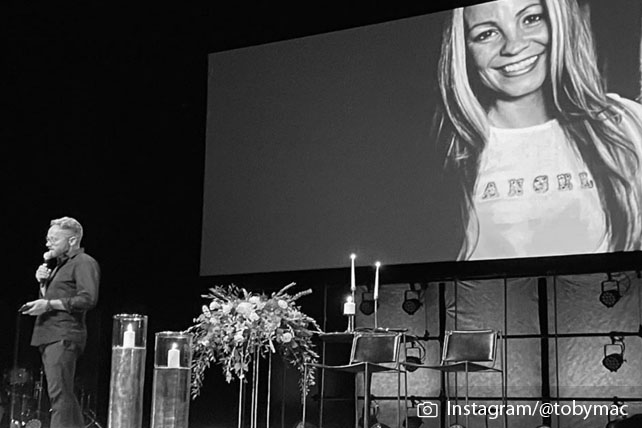For years, there has been a silent message that most of us have been taught to accept. It is based on an idea that is portrayed as Biblical. The message is that in order to be a good Christian in any situation, no matter how hard, you must die to yourself.
This message has been passed down in various forms, such as:
- You should always be nice.
- You should only think of others.
- It’s wrong to think about yourself.
In fact, you might have even heard these messages summarized in one powerful statement: You must die to yourself.
The subtle power of this message is strong, especially for women, because it is often portrayed as what Jesus wants. After all, didn’t Jesus say: “If anyone would come after me, let him deny himself and take up his cross daily and follow me”? (Luke 9:23)
This phrase has been used out of context to encourage millions of women to:
- destroy their health
- stay in abusive marriages
- let co-workers take advantage of them
- bury their God-given talents
- sit by while friends walk all over them
Do you really think that’s what Jesus meant?
When verses are ripped out of context and used as a weapon, it’s toxic. You may not even know that you’ve somehow internalized this toxic interpretation of Jesus’s words. You just know that you’re exhausted, hurting, empty, and overwhelmed.
I’ve been there. As a young Christian woman, I believed it was my job to say “yes” to every single person around me. I wanted to serve and help others, and I thought that my job was to “die to myself” in order to meet the needs of everyone else. This worked for a while, until I completely burnt out. I ended up feeling empty and alone. I was angry at others and angry at God. I had worked so hard to help others, why was I feeling this way?
I loved Jesus, and I genuinely cared for other people. I just didn’t have a clue how to honor the as yourself part of the “love others” commandment.
I didn’t know how to let Jesus love ME.
I didn’t know that loving others is a two-way street.
I didn’t know that contrary to what I had been taught, saying “yes” to Jesus meant saying “yes” to caring for my own heart and learning to meet my own needs.
But don’t take my word for it.
What “Die To Yourself” Really Means
Jesus said to deny yourself to follow him. Let’s take a look at what those phrases really mean.
First, listen to what Jesus said about what it means to die to yourself. Later in his life, when talking to his disciples, Jesus used a metaphor to describe the process of dying to yourself:
“Listen carefully, unless a grain of wheat is buried in the ground, dead to the world, it is never any more than a grain of wheat. But if it is buried, it sprouts and reproduces itself many times over. In the same way anyone who holds on to life just as it is destroys that life. But if you let it go, reckless in your love, you’ll have it forever, real, and eternal.” John 12:24-25, MSG (emphasis added)
A grain of wheat must be buried deep in the ground in order to become what it is really meant to become. That burial is like a death. That grain stops being a grain when it gets buried. Something old is gone. But what happens to that grain? It sprouts and reproduces itself many times over. That grain becomes even more powerful. It shines even more brightly.
In light of this passage:
Dying to yourself is a process of letting go of what was in order to become who you are meant to be.
This idea is backed up in other passages, as we learn what it means to follow Jesus. Here’s what John says:
But whoever did want him,
who believed he was who he claimed
and would do what he said,
He made to be their true selves,
their child-of-God selves.
John 1:11-12 MSG (emphasis added)
John is saying that when you follow Jesus, believe in him, and do what he asks, you will become even more of your true self, the beautiful soul that God made. We know from Jesus’s words that the process can feel like death, like you are losing all that you have known. Indeed, letting go of old ways can be painful. Change is no small thing. But here’s the promise: You are dying to old ways in order to become the fierce, light-bearing woman that God made.
When you follow Jesus, you become your true self, your child-of-God self.
This process is not a rigid form of self-denial. It is not a “grin and bear it” way of being in the world. In fact, it’s quite the opposite. If you are taking that approach, I’ll be honest: those parts of you are hanging on to old ways. It’s not actually dying to yourself.
Instead, consider this.
What if dying to yourself means dying to:
- toxic patterns of relating to other people
- people pleasing as a way to get love
- shame and self-hatred
- trying to perfect yourself in order to earn approval
- playing small so others won’t be threatened by you
- believing that you don’t matter and that your life does not have value
What if dying to yourself means dying to the lie that God does not want more for you?
What if dying to yourself means saying “yes” to doing the work of becoming your true self?
What if dying to yourself means saying “yes” to following Jesus as he seeks to heal you and your relationships from the inside out?
This is the what I believe it means to say “yes” to the life God has for you. It is what I believe it means to grow in emotional and spiritual health. It means “dying to” toxic patterns of relating to God, yourself, and others. And, it means saying “yes” to following the Good Shepherd as he leads you to becoming more of your God-created self.
Saying Yes to the Life God Has For You
If you’ve struggled with that voice of rigid self-denial, try the following exercise. Take out a blank piece of paper and divide it into two halves. Think of a situation or relationship that is plaguing you, and start to pay attention to the messages in your mind.
1.) List your “Die to Yourself” Messages.
On one side of the paper list the “die to yourself” messages that run through your mind. These are the self-denial messages that can show up in any number of ways. They often include the word “should”:
- I “should” do what he wants.
- I “should” meet that need.
- I “should” forget about that dream.
- I “should” be the bigger person in this situation.
- I “should” pretend that what she did was OK.
2.) List your “What if I could” Messages.
On the other side of the paper make a second list. On this list, give yourself permission to write down what you would like to do if you “could”. For example,
- I would take more space from this relationship if I could get it.
- I would confront my boss if it wouldn’t jeopardize my job.
- I would ask for help if I thought they’d step up.
- I would say “please stop” if I knew it didn’t come with a cost.
- I would walk away if I could do it without hurting anyone.
3.) Get Curious.
Take a look at both columns. At this point, don’t evaluate which side is “right” or “wrong.” Instead, get curious about each of the columns and what it feels like inside to see them in front of you. Simply notice what it’s like to get those voices out of your head and onto the page in front of you.
Getting curious shifts you out of old patterns of thinking and creates space for new possibilities. It helps you become more aware of habits or behaviors that may no longer be healthy for you.
4.) Invite God to Draw Near.
Prayerfully consider both columns, inviting God to draw near. Are you sure that “should” column is from him? Is it possible he’s nudging you toward saying “yes” to what you need and want? Don’t rush into making a big change at this point. Simply notice any assumptions you’ve been making about God.
The point of this exercise is to grow in self + God-awareness. It’s to begin to notice messages that you might be listening to that aren’t actually what God wants or what is best for you.
This is the first step in making what I call a “Yes List.” It’s starting to think about what you want to say yes to in order to honor the woman God made. It may feel uncomfortable at first. That’s OK. Over the coming weeks, I’ll give you more opportunities to practice “dying” to unhealthy ways of relating to other people and start saying “Yes” to the life God has for you.
This article originally appeared here.












